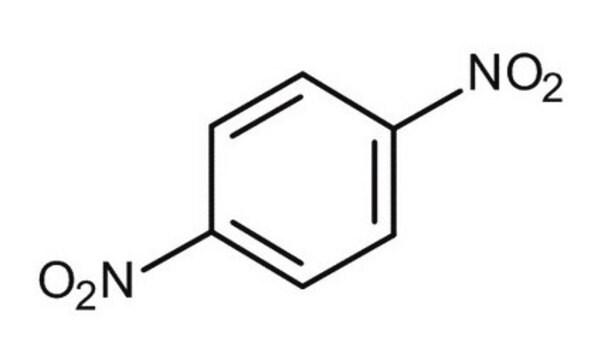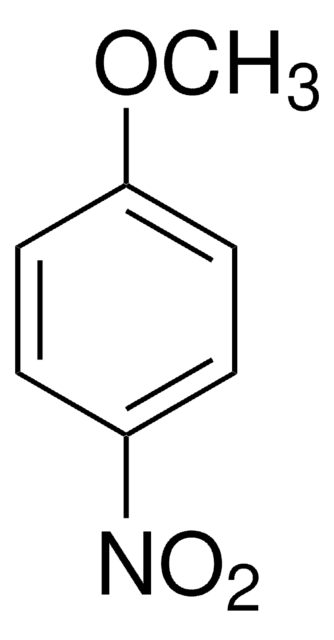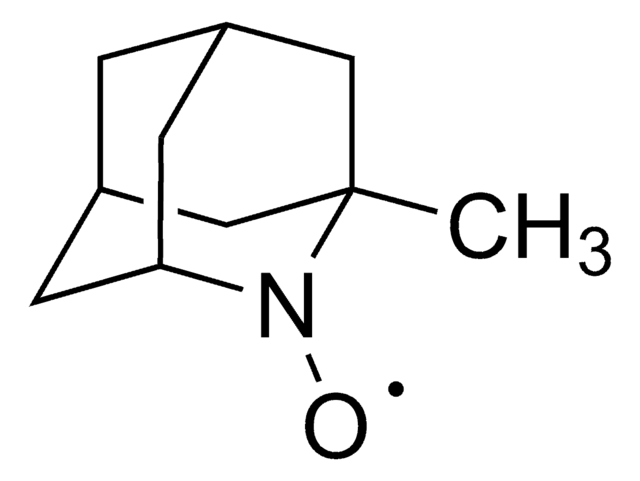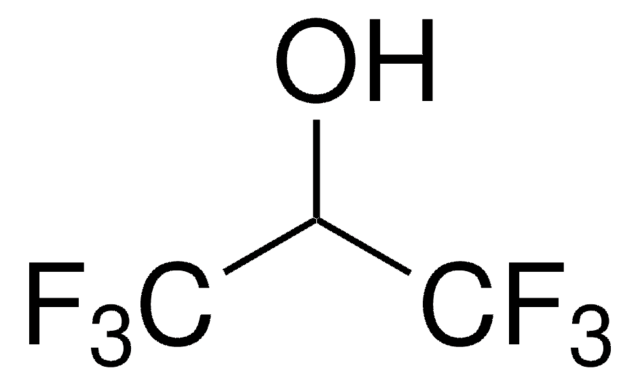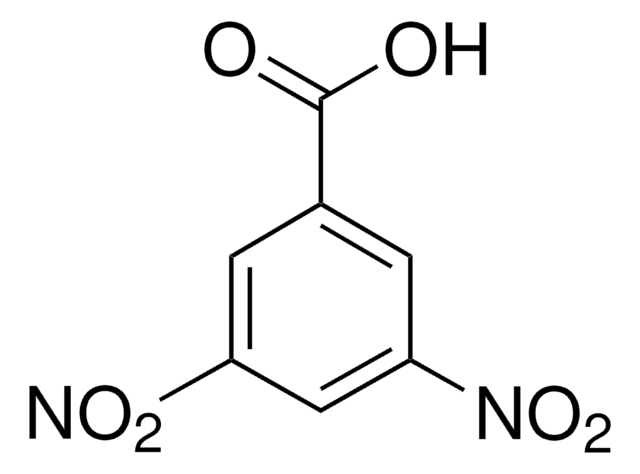126632
1,2-Dinitrobenzene
97%
Synonym(s):
o-Dinitrobenzene
About This Item
Recommended Products
Quality Level
Assay
97%
form
solid
bp
319 °C/773 mmHg (lit.)
mp
114-117 °C (lit.)
functional group
nitro
SMILES string
[O-][N+](=O)c1ccccc1[N+]([O-])=O
InChI
1S/C6H4N2O4/c9-7(10)5-3-1-2-4-6(5)8(11)12/h1-4H
InChI key
IZUKQUVSCNEFMJ-UHFFFAOYSA-N
Looking for similar products? Visit Product Comparison Guide
General description
Application
- A highly divergent Pictet-Spengler approach for pyrrolo quinoxalines from aryl amine using 1,2-dinitrobenzene as an oxidant: Discusses the utility of 1,2-dinitrobenzene as an oxidant in organic synthesis, relevant for developing novel pharmaceuticals (Pardeshi et al., 2019).
Signal Word
Danger
Hazard Statements
Precautionary Statements
Hazard Classifications
Acute Tox. 1 Dermal - Acute Tox. 2 Inhalation - Acute Tox. 2 Oral - Aquatic Acute 1 - Aquatic Chronic 1 - STOT RE 2
Storage Class Code
6.1A - Combustible acute toxic Cat. 1 and 2 / very toxic hazardous materials
WGK
WGK 3
Flash Point(F)
302.0 °F - closed cup
Flash Point(C)
150 °C - closed cup
Choose from one of the most recent versions:
Already Own This Product?
Find documentation for the products that you have recently purchased in the Document Library.
Our team of scientists has experience in all areas of research including Life Science, Material Science, Chemical Synthesis, Chromatography, Analytical and many others.
Contact Technical Service

